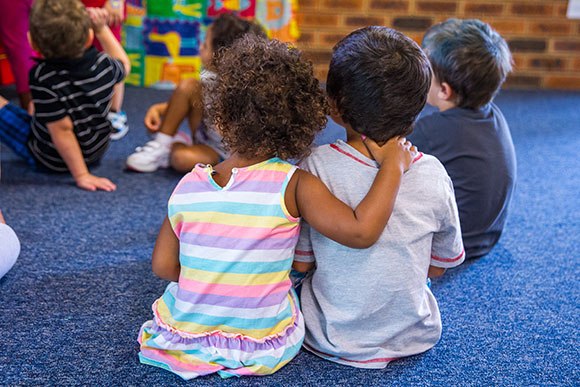InclusivED’s vision is to have all children learn, engage, and be supported in regular mainstream schooling to promote inclusion for all.

InclusivED values persistence, perseverance, and a presumption of competence on the journey of Inclusion.
InclusivED believes that every child, student, participant, and family have a right to be part of a fully inclusive supportive community. When children and young people are supported both at home and in school, we create innovative pathways for their future. Trusting partnerships, advocacy and support provide a collective approach to promoting individual and systemic change in education for our children.
InclusivED aims to:
- increase access,
- encourage social and educational inclusion and
- promote individual empowerment and participation in community life.
So the consultancy has a clear understanding of the expectations and standards that govern Cultural Competency Frameworks, InclusivED has used the Cultural Competency Checklist Framework devised by:
“Tawara D. Goode. Georgetown University Centre for Child and Human Development- University Centre for Excellence in Developmental Disabilities Education, Research & Service. Adapted from – Promoting Cultural Competence and Cultural Diversity in Early Intervention and Early Childhood Settings-June 1989. Revised 1993, 1996, 1999, 2000”.
InclusivED is committed to promoting an inclusive community by valuing cultural diversity and will take all the necessary steps listed below to ensure that it is a consultancy that reflects cultural sensitivity and respect for all cultures:
CONTEXT
1. InclusivED will take steps to negotiate the most appropriate and effective work environment when engaging with Aboriginal and Torres Strait Islanders. They will take these same steps for culturally and linguistically diverse participants, organisations and services.
2. InclusivED will take steps to display pictures, posters and other materials that reflect the cultural diversity of individuals, families, and community members where necessary.
3. When possible, InclusivED will take steps to ensure that all notices and communiqués to participants, organisations, and services. are written in an appropriate manner i.e. relevant to local language, no heavy jargon, etc.
4. When observing any person engaging in behaviours that show cultural insensitivity, bias or prejudice, InclusivED will takes the steps to intervene in an appropriate manner.
5. InclusivED will take steps to avoid imposing personal values and attitudes that may conflict or be inconsistent with culture norms of the participant, individual, family and community member.
6. InclusivED will take the steps to increase corporate knowledge of cultural protocols and comply with them when using all cultural information.
7. InclusivED will aim to comply with the cultural protocols when displaying and using visual objects (including implements, artwork, and artefacts).
PRACTICES
8. InclusivED will take steps to use culturally appropriate methods to collect information about participants from diverse cultures and backgrounds.
9. InclusivED will take steps to promote and integrate principles and practices that promote cultural diversity and cultural competence in the organisation’s mission statement.
10. InclusivED will take steps to identify the current level of personal and organisational cultural competence and develop strategies to address these gaps at a personal and organisational level.
11. InclusivED will take steps to actively involve persons of Aboriginal and/or Torres Strait Islander heritage and culturally and linguistically diverse backgrounds within planning processes when supporting participants from those backgrounds
RELATIONSHIPS
12. InclusivED will take steps to implement strategies that encourage participation by consultation and collaboration with, individuals, families and community members from all cultural backgrounds.
13. InclusivED will seek information from family members or other key community spokespersons that will assist in providing culturally appropriate services that respond to the cultural needs of the individual, families and community members.
14. InclusivED will seek information on acceptable behaviours, courtesies, customs and expectations that are unique to Aboriginal and Torres Strait Islander cultures and culturally and linguistically diverse cultures.
15. InclusivED will take steps to use culturally appropriate body language, visual aids, gestures, and physical prompts in all interactions with Aboriginal and Torres Strait Islander persons and culturally and linguistically diverse persons.
16. InclusivED will take steps to use appropriate communication methods when interacting with Aboriginal and Torres Strait Islander persons and culturally and linguistically diverse persons who may have English as a second or third language. InclusivED will be respectful that a limited use of English does not reflect the level of intelligence of a person or the ability to communicate effectively in their own language. InclusivED will also be mindful that a person may or may not be literate in English or their local language.
SERVICE DELIVERY
17. When developing and implementing the provision of services and making decisions (operational and strategic) InclusivED will take steps to consult with Aboriginal and Torres Strait Islander persons and culturally and linguistically diverse persons and take into consideration the importance of maintaining community relationships
18. InclusivED will take steps to promote a collaborative service delivery model to meet specific cultural needs of Individuals, families and community members.
19. InclusivED will take steps to develop and implement culturally appropriate communication strategies
20. InclusivED will take steps to understand that community expectations and loyalties can conflict with the need to achieve program and service delivery outcomes.
Updated 1st May 2021